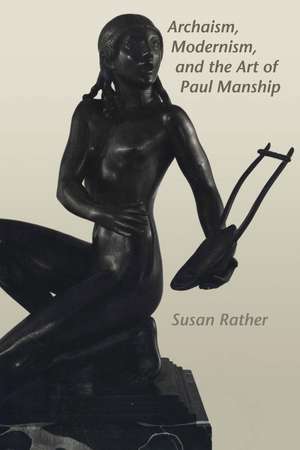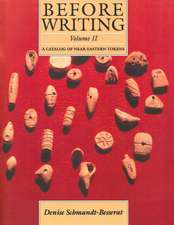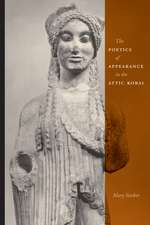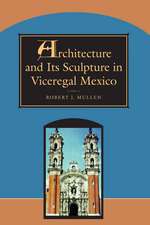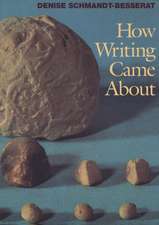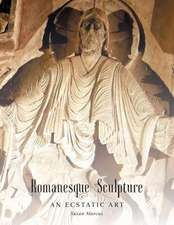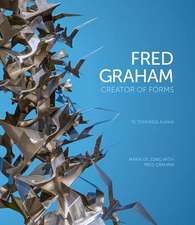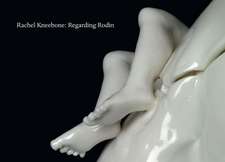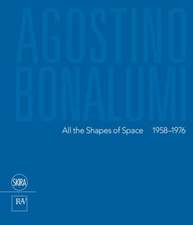Archaism, Modernism, and the Art of Paul Manship: American Studies Series
Autor Susan Ratheren Limba Engleză Paperback – 19 dec 2014
Rather rejects the prevailing conception of archaism as a sterile and superficial academic style to argue its initial importance as a modernist mode of expression. The early practitioners of archaism—including Aristide Maillol, André Derain, and Constantin Brancusi—renounced the rhetorical excess, overrefined naturalism, and indirect techniques of late nineteenth-century sculpture in favor of nonnarrative, stylized and directly carved works, for which archaic Greek art offered an important example. Their position found implicit support in the contemporaneous theoretical writings of Emmanuel Löwy, Wilhelm Worringer, and Adolf von Hildebrand.
The perceived relationship between archaic art and tradition ultimately compromised the modernist authority of archaism and made possible its absorption by academic and reactionary forces during the 1910s. By the 1920s, Paul Manship was identified with archaism, which had become an important element in the aesthetic of public sculpture of both democratic and totalitarian societies. Sculptors often employed archaizing stylizations as ends in themselves and with the intent of evoking the foundations of a classical art diminished in potency by its ubiquity and obsolescence. Such stylistic archaism was not an empty formal exercise but an urgent affirmation of traditional values under siege. Concurrently, archaism entered the mainstream of fashionable modernity as an ingredient in the popular and commercial style known as Art Deco. Both developments fueled the condemnation of archaism—and of Manship, its most visible exemplar—by the avant-garde. Rather’s exploration of the critical debate over archaism, finally, illuminates the uncertain relationship to modernism on the part of many critics and highlights the problematic positions of sculpture in the modernist discourse.
Preț: 224.14 lei
Nou
Puncte Express: 336
Preț estimativ în valută:
42.89€ • 44.78$ • 35.50£
42.89€ • 44.78$ • 35.50£
Carte tipărită la comandă
Livrare economică 04-18 aprilie
Preluare comenzi: 021 569.72.76
Specificații
ISBN-13: 9780292765108
ISBN-10: 029276510X
Pagini: 284
Dimensiuni: 152 x 229 x 21 mm
Greutate: 0.42 kg
Editura: University of Texas Press
Colecția University of Texas Press
Seria American Studies Series
ISBN-10: 029276510X
Pagini: 284
Dimensiuni: 152 x 229 x 21 mm
Greutate: 0.42 kg
Editura: University of Texas Press
Colecția University of Texas Press
Seria American Studies Series
Notă biografică
Susan Rather is Associate Professor of Art History at the University of Texas at Austin.
Cuprins
- Illustrations
- Acknowledgments
- Introduction
- 1. The American Academy in Rome and the Formation of Manship’s Archaism
- 2. The Archaeological Background
- 3. Archaism as Modernism: Content and Technique
- 4. Centaur and Dryad: Manship’s Art in Context
- 5. Archaism from Other Places and in Other Modes
- 6. Archaism during the 1920s and 1930s: Decorative and Monumental
- 7. Archaism and the Critics: Disenchantment
- Appendix: “The Decorative Value of Greek Sculpture”
- Notes
- Bibliography of Works Cited
- Index
Descriere
The author considers the theory, practice, and criticism of early twentieth-century sculpture in order to reveal the changing meaning and significance of the archaic in the modern world.
